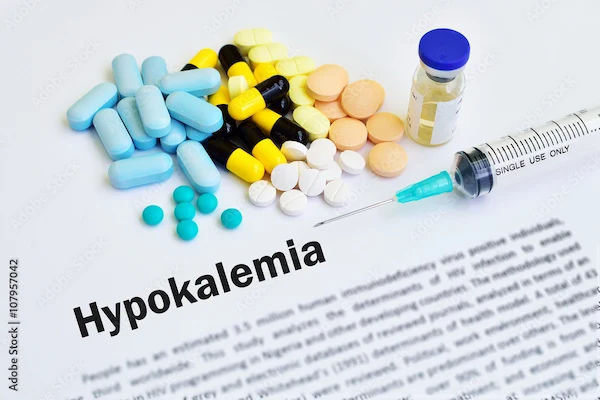Safe Dosage of Sleeping Pills Explained
Understand the safe dosage of sleeping pills, potential side effects, and when to seek medical advice to ensure effective and responsible use for better sleep health

Written by Dr. Dhankecha Mayank Dineshbhai
Reviewed by Dr. Mohammed Kamran MBBS, FIDM
Last updated on 13th Jan, 2026

Sleeping pills can be a helpful solution for people struggling with insomnia or other sleep disorders. However, taking them safely is crucial to avoid side effects, dependency, or other health risks. If you or a loved one is considering sleeping pills, it’s important to understand the right dosage, potential risks, and safer alternatives.
Understanding Sleeping Pills
Sleeping pills, also known as sedative-hypnotics, are medications designed to help people fall asleep or stay asleep. They are usually prescribed for short-term use when lifestyle changes alone don’t improve sleep. Common types include:
- Benzodiazepines (e.g., Diazepam, Lorazepam): Used for anxiety and insomnia.
- Non-Benzodiazepines (e.g., Zolpidem, Zaleplon): Newer drugs with fewer side effects.
- Melatonin Receptor Agonists (e.g., Ramelteon): Mimic the natural sleep hormone melatonin.
- Antidepressants (e.g., Trazodone): Sometimes prescribed for sleep issues.
Why Safe Dosage Matters?
Taking the wrong dose of sleeping pills can lead to:
- Drowsiness and dizziness the next day, increasing accident risks.
- Memory problems or confusion.
- Dependence (needing higher doses over time).
- Respiratory issues (especially in people with sleep apnea).
- Overdose risk if mixed with alcohol or other sedatives.
Recommended Dosage Guidelines
The right dosage depends on the type of pill, your age, health condition, and other medications you take.
Here’s a general guideline:
1. Benzodiazepines (e.g., Diazepam, Lorazepam)
- Starting dose: 2–5 mg (varies by drug).
- Maximum dose: Usually not more than 10 mg per day.
- Duration: Short-term (2–4 weeks) to avoid dependence.
2. Non-Benzodiazepines (e.g., Zolpidem, Zaleplon)
- Zolpidem (Ambien): 5–10 mg before bedtime.
- Zaleplon (Sonata): 5–20 mg, taken only if you have at least 4 hours to sleep.
- Eszopiclone (Lunesta): 1–3 mg before sleep.
Consult Top Specialists
3. Melatonin-Based Pills (e.g., Ramelteon)
- Dose: 8 mg, 30 minutes before bedtime.
- Safer for long-term use but should still be monitored.
4. Antidepressants (e.g., Trazodone)
- Dose: 25–100 mg at bedtime.
- Not FDA-approved for insomnia but sometimes prescribed.
Important Notes:
- Never take more than prescribed.
- Avoid alcohol—it increases side effects.
- Do not crush or split pills unless advised by a doctor.
- Older adults may need lower doses due to slower metabolism.
Signs of Overdose or Dangerous Side Effects
If you or someone experiences these symptoms, seek medical help immediately:
- Extreme drowsiness or confusion
- Slow or shallow breathing
- Fainting or difficulty waking up
- Unusual behaviour (sleepwalking, hallucinations)
Safer Alternatives to Sleeping Pills
Before relying on medication, try these natural sleep-improving tips:
1. Sleep Hygiene Practices
- Stick to a regular sleep schedule (same bedtime and wake-up time).
- Keep your bedroom dark, cool, and quiet.
- Avoid screens (phones, TV) 1 hour before bed.
2. Relaxation Techniques
- Deep breathing exercises
- Meditation or gentle yoga
- Warm bath before bed
3. Dietary Adjustments
- Avoid caffeine and heavy meals before bedtime.
- Try warm milk, chamomile tea, or almonds (natural sleep aids).
4. Exercise Regularly
- Light exercise (walking, stretching) helps improve sleep quality.
- Avoid intense workouts close to bedtime.
When to See a Doctor?
Consult a healthcare provider if:
- You’ve been taking sleeping pills for more than 2–4 weeks.
- You experience memory loss, dizziness, or mood changes.
- Your sleep doesn’t improve despite lifestyle changes.
If you need expert advice, you can book a consultation with a sleep specialist through Apollo 24|7. They can help determine the best treatment plan for your needs.
Conclusion
Sleeping pills can be useful when used correctly, but they should never be a long-term solution. Always follow your doctor’s instructions, avoid self-medicating, and explore natural sleep remedies first. Prioritising good sleep habits can lead to better rest without the risks of medication.
If you have concerns about your sleep or medication, don’t hesitate to schedule a consultation with a healthcare professional. Your well-being matters, and safe sleep is a key part of a healthy life.
Consult Top Specialists
Consult Top Specialists

Dr. Afreen Banu Khan
General Physician/ Internal Medicine Specialist
12 Years • MBBS, DDM (Diab). FCC (Cardio)
Chennai
Apollo Speciality Hospitals OMR, Chennai

Dr. Promise Jain
General Physician/ Internal Medicine Specialist
20 Years • MBBS, DNB Medicine, TDD, MNAMS, PGCDM, CCEBDM, CCMTD,PGDE Senior Consultant- Internal Medicine Head- Department of critical care Apollo Sage Hospital, Bhopal, MP Intensivist, Diabetes, Thyroid , Physician
Bhopal
Apollo Sage Hospitals, Bhopal

Dr Rajashree Dhongade
General Physician/ Internal Medicine Specialist
9 Years • MD.Medicine,Fellowship in Critical Care Medicine (MUHS)
Nashik
Apollo Hospitals Nashik, Nashik
(25+ Patients)

Dr. Ramya Hari
General Practitioner
18 Years • Medical Head & Family Physician, DG Shipping Approved Doctor, Panel Physician - UK Visa Medicals
Chennai
Apollo Medical Centre Kotturpuram, Chennai

Dr. Neelam Jain
General Physician/ Internal Medicine Specialist
16 Years • "MBBS, DPB ( Dip in pathology and bacteriology)-Mumbai CCEBDM, PGCDM, CCMTD"
Bhopal
Apollo Sage Hospitals, Bhopal
Consult Top Specialists

Dr. Afreen Banu Khan
General Physician/ Internal Medicine Specialist
12 Years • MBBS, DDM (Diab). FCC (Cardio)
Chennai
Apollo Speciality Hospitals OMR, Chennai

Dr. Promise Jain
General Physician/ Internal Medicine Specialist
20 Years • MBBS, DNB Medicine, TDD, MNAMS, PGCDM, CCEBDM, CCMTD,PGDE Senior Consultant- Internal Medicine Head- Department of critical care Apollo Sage Hospital, Bhopal, MP Intensivist, Diabetes, Thyroid , Physician
Bhopal
Apollo Sage Hospitals, Bhopal

Dr Rajashree Dhongade
General Physician/ Internal Medicine Specialist
9 Years • MD.Medicine,Fellowship in Critical Care Medicine (MUHS)
Nashik
Apollo Hospitals Nashik, Nashik
(25+ Patients)

Dr. Ramya Hari
General Practitioner
18 Years • Medical Head & Family Physician, DG Shipping Approved Doctor, Panel Physician - UK Visa Medicals
Chennai
Apollo Medical Centre Kotturpuram, Chennai

Dr. Neelam Jain
General Physician/ Internal Medicine Specialist
16 Years • "MBBS, DPB ( Dip in pathology and bacteriology)-Mumbai CCEBDM, PGCDM, CCMTD"
Bhopal
Apollo Sage Hospitals, Bhopal




